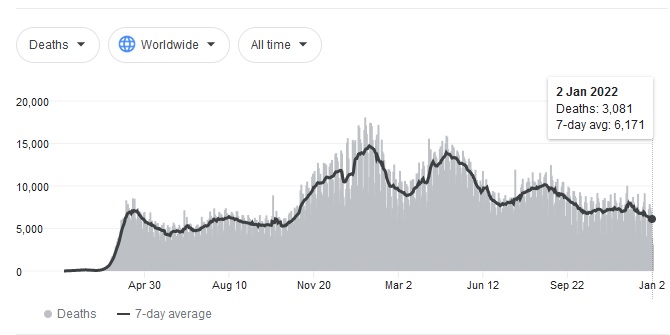Immunity wanes against the Omicron variant of the coronavirus with both the Moderna and Pfizer/BioNTech vaccines – but not as much as it wanes after a natural infection, researchers reported Friday.
And they say their findings show the need for vaccines that specifically protect against Omicron.
Dr. Emilia Sordillo at the Icahn School of Medicine at Mount Sinai in New York and colleagues tested the blood of people who had been vaccinated, or vaccinated and boosted with Moderna’s or Pfizer/BioNTech’s vaccines, as well as the blood of people who had recovered from Covid-19.
Although the tests were done in lab dishes, the researchers said the experiment replicates real life conditions because they used live virus. They looked for what are known as neutralizing antibodies: immune system structures that can stick to the virus and stop it from infecting cells. “Across all 85 samples, the reduction in neutralization for Omicron was greater than 14.5 fold,” compared with the Beta variant and the original strain, they wrote. “In comparison, there was only a four-fold reduction against Beta in the same sample.
“In fact, 16.5% of samples lost all neutralizing activity against Omicron.” That included nearly three-quarters of blood samples from people who had recovered from infections.
“Our findings support recent reports describing significantly reduced protection from reinfection and almost non-existent vaccine effectiveness against symptomatic disease after two BNT162b2 (Pfizer) vaccinations,” they wrote. But people who got Pfizer boosters had protection “in the range of 75%,” they wrote.
They found no evidence that the Moderna vaccine provides stronger protection than Pfizer’s. The blood of people who got two doses of Pfizer/BioNTech’s vaccine produced antibody neutralization levels that were 23-fold lower against Omicron than against the original strain of the virus, and antibody levels from people who got Moderna’s vaccine were 42 times lower. For people who got booster doses, neutralization activity was 7.5 times lower for the Pfizer/BioNTech vaccine and 16.7 times lower for Moderna’s.
In general, antibody protection correlates with real-life protection, but it doesn’t measure the long-term protection from severe disease and death provided by a slower-growing and longer-lasting type of protection: immune cells called T cells.
“We should remember that the relationship between measurable neutralizing antibodies and clinical course of infection is not a simple one. In general, antibodies are required to prevent initial infection; but cellular immunity – which may be maintained – is required to prevent serious illness,” Dr. Peter English, an expert in communicable disease control in the UK, said in a statement.
“Importantly, the study supports the view that a third dose of vaccine considerably improves the antibody response against Omicron infection,” added English, who was not involved in the study.
Dr. Julian Tang of the University of Leicester, who also was not involved in the study, also said T-cell responses are important for long-term protection against severe disease.
“The bottom line is that boosting existing immunity (whether vaccine or naturally acquired) does help to protect against infection/reinfection to some degree – as well as boosting existing T-cell responses – all of which will help to protect us against Omicron. So getting these booster doses is important – especially if you are in one of the more vulnerable groups,” Tang said.




